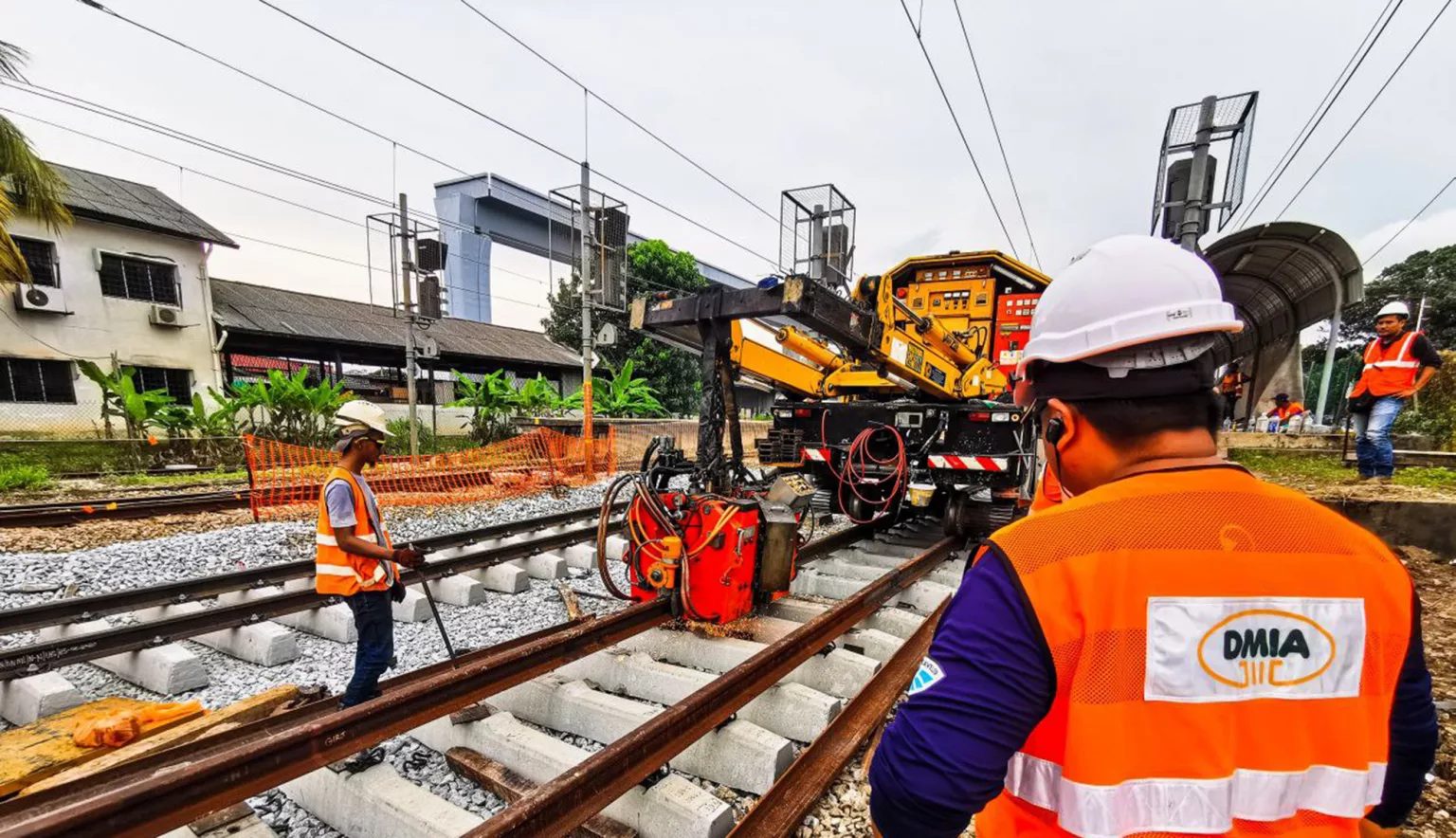Despite the health and economic challenges presented by the COVID-19 crisis, Dhaya Maju Infrastructure (Asia) continues to spearhead vital rail infrastructure projects across the country to ensure socioeconomic development is sustained.
KEEPING MALAYSIA ON TRACK
While 2020 will be remembered as the year that saw the coronavirus pandemic cause health and economic crises around the world, it has highlighted the remarkable degree of resilience that exists within societies.
In Malaysia, the government’s movement control order, issued in March to safeguard public health, brought large sectors of its economy to a halt. Non-essential workers are staying at home, many have lost jobs and entire industries such as construction have had to pause projects.
For companies such as Dhaya Maju Infrastructure (Asia) Sdn Bhd (DMIA), the pandemic has caused mass disruption and presented many logistical challenges, but it has remained resolute throughout and is determined to continue contributing to the socioeconomic development of Malaysia.
A leading national public transportation, infrastructure and property company established in 1996, DMIA is committed to delivering world-class projects with integrity, professionalism, and high quality, built on principles of continual improvement, high productivity, and sustainable ambition.
Today it’s focus remains the same – to deliver quality and reliable developments for railways, highways, public infrastructure and property. Indeed, DMIA hopes that under the 12th Malaysian Plan covering 2020 to 2025, the country spending for public transport, logistics, urbanisation and communications will become the catalyst for Malaysian growth post COVID-19.
This is because rail transportation carries a huge impact on socioeconomic development in Malaysia. It has served as a catalyst that moves people and goods since 1885, becoming a corridor for a new growth and development connecting cities and rural areas.
The rail industry is expecting to see more than 200 billion Malaysian ringgit ($47 billion) invested up to 2030, with several critical projects ongoing, and DMIA has responded to ensure the safety of its employees during these unprecedented times. Management are working from home, while essential site staff are ensuring that projects currently under development remain safe.
INVESTING IN PEOPLE
As well as making important progress on projects since we last spoke with the company in April 2019, it has also invested heavily in its people over the past year or so.
Workers are ensured safe and comfortable living at the new DMIA Centralised Workers Quarters in Kuala Lumpur, where they are provided with COVID-19 swab tests and also transportation to and from construction sites, with both transport and work areas sanitised.
Indeed, safety has been the number one priority throughout the coronavirus period.
Not only did the company’s report for Q2 2020 show 1.6 million man hours worked without loss-time injury, it was also the first rail development firm to be given the green light to work during the health crisis, underlining the trusted reputation it carries in Malaysia.
In terms of finding and developing talent, DMIA has a number of exciting programmes underway.
It is currently building a new centre of excellence in Selangor, a project worth RM200 million ($47.7 million) which will house state-of-the-art machinery. It will not only become a regional centre of excellence, but also a key hub from which the company can deliver new rail projects and engage in the future of rail expansion in Southeast Asia.
In the province of Sabah and Sarawak (eastern Malaysia), DMIA is working with local authorities to find aspiring talents to join the organisation. The scheme will see the state providing the training required, with DMIA offering a fulfilling career for these qualified and skilled individuals.
At a national level, the firm is working with government to support its Agenda Bumiputera programme, which will teach young professional talents skills relating to project management, managing heavy machinery, coordinating materials and other work involved with delivering railway projects.
BIGGER AND BETTER
Steps are also being taken to strengthen DMIA’s capabilities across the areas of rail construction, rehabilitation and maintenance, with new machinery and human skills being at the centre of these enhancements.
It has invested RM200 million ($47.7 million) in maintaining its man-machine dynamic, with further investment and collaboration with key vendors needed if the firm is to take on larger challenges in the future.
Here, China and its Belt and Road Initiative represent a tremendous opportunity for the likes of DMIA to participate in ground-breaking activity across the wider SEA region.
As activity picks up in a post-COVID-19, ‘new normal’ world, DMIA Group looks extremely well placed to contribute both to Malaysia’s ongoing infrastructure development, and expand into new markets as and when the opportunities arise.





















